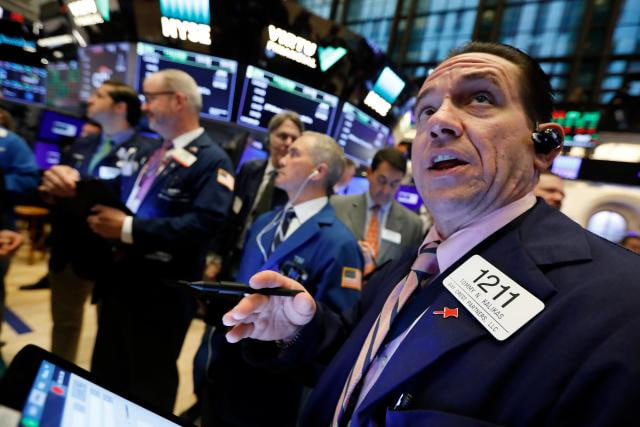Robinhood: A Deep Dive into the Controversial Brokerage
Meta Description: Explore the rise and fall of Robinhood, a brokerage that revolutionized investing but faced scrutiny for its practices. Learn about its business model, key features, controversies, and future outlook.
Are you curious about Robinhood, the brokerage that made headlines for its gamified investing platform and controversial practices? While Robinhood initially attracted millions of users with its commission-free trading and user-friendly interface, it has faced criticism for its role in the GameStop saga and its impact on novice investors. This comprehensive guide provides an in-depth look at Robinhood, exploring its business model, features, controversies, and future prospects.
From its humble beginnings to its meteoric rise and subsequent struggles, Robinhood's story is one of both innovation and controversy. This article delves into the heart of this brokerage, examining its core features, analyzing its business model, evaluating its impact on the financial landscape, and uncovering its controversial past. Join us as we navigate the complex world of Robinhood, uncovering the truth behind the hype.
The Rise of Robinhood: A Game-Changer for Retail Investors
Robinhood emerged in 2013 with a bold vision: to democratize investing and make it accessible to everyone. Traditional brokerages were often seen as expensive and intimidating, with high minimums and complex platforms. Robinhood sought to change that, offering a commission-free trading platform with a user-friendly interface. Its sleek app, coupled with its gamified features, quickly attracted a new generation of investors.
Robinhood's key features that propelled its rise included:
- Commission-free trading: This was a game-changer, eliminating the fees that often deterred novice investors.
- User-friendly mobile app: Robinhood's intuitive app made it easy for users to buy and sell stocks, options, and cryptocurrencies.
- Fractional shares: Users could buy fractions of shares, making investing more accessible for those with limited capital.
- Gamification: Features like "streak" tracking and "achievement" badges gamified the investing experience, making it more engaging and fun.
Robinhood's Business Model: Revenue Streams and Controversy
While Robinhood offered commission-free trading, it wasn't completely free. The company generated revenue through:
- Payment for order flow (PFOF): Robinhood sold its customers' orders to high-frequency trading firms, which paid a premium to execute them.
- Interest income: Robinhood earned interest on the cash balances held by its customers.
- Subscription fees: Robinhood offered a subscription service called Robinhood Gold, which provided additional features like margin trading and advanced research tools.
The use of PFOF was particularly controversial, as it raised concerns about potential conflicts of interest. Critics argued that Robinhood's priority wasn't necessarily its customers' best interests, but rather maximizing its own profits. This led to accusations that Robinhood might prioritize orders that would generate more revenue for the company, even if they weren't necessarily the most beneficial for its customers.
The GameStop Saga: Robinhood's Role in the Meme Stock Frenzy
In 2021, Robinhood found itself at the center of the GameStop saga, a major event that highlighted the power of retail investors and the potentially risky nature of meme stocks.
Here's a breakdown of the events:
- Short squeeze: Short-sellers were betting against GameStop, expecting its stock price to fall.
- Retail investor interest: A Reddit forum called WallStreetBets encouraged users to buy GameStop stock, driving its price up.
- Robinhood restricts trading: Robinhood temporarily restricted trading in GameStop and other meme stocks, citing market volatility.
- Public outcry: The move sparked widespread outrage, with critics accusing Robinhood of prioritizing the interests of hedge funds over its own customers.
- Congressional hearings: Robinhood faced scrutiny from lawmakers who questioned its practices and the potential conflict of interest created by its PFOF model.
The GameStop saga highlighted the vulnerabilities of both traditional financial systems and the growing power of retail investors. Robinhood's role in the saga further fueled the debate about its business practices and its commitment to putting its customers first.
The Future of Robinhood: Challenges and Opportunities
Robinhood faces numerous challenges ahead, including:
- Increased competition: The brokerage industry is becoming increasingly competitive, with numerous other platforms offering commission-free trading and user-friendly interfaces.
- Regulatory scrutiny: Robinhood is likely to face continued scrutiny from regulators over its business practices and its role in volatile markets.
- Investor confidence: The GameStop saga and other controversies have tarnished Robinhood's reputation, impacting investor confidence.
Despite these challenges, Robinhood has opportunities for growth:
- Expansion into new markets: Robinhood is expanding its offerings to include things like cryptocurrency trading and options trading.
- Enhanced features: Robinhood is continuously adding new features to its platform, such as advanced research tools and educational resources.
- Building trust: Robinhood needs to focus on regaining investor trust by demonstrating its commitment to ethical practices and customer-centricity.
Robinhood: A Tale of Two Sides
Robinhood's story is a complex one, characterized by both innovation and controversy. While its platform revolutionized investing and made it accessible to millions, its business practices and role in the GameStop saga raised questions about its ethics and its commitment to its customers' interests.
As Robinhood navigates the challenges and opportunities ahead, it will be crucial for the company to strike a balance between its business goals and its responsibilities to its users. The future of Robinhood, like its past, is likely to be filled with both opportunities and challenges.
Keywords: Robinhood, Brokerage, Investing, Stock Trading, Commission-Free, Gamification, GameStop, Meme Stocks, PFOF, Controversy, Regulation
FAQ
Q: Is Robinhood really free?
A: While Robinhood offers commission-free trading, it generates revenue through other means, such as payment for order flow (PFOF) and interest income.
Q: Is Robinhood safe?
A: Robinhood is a registered broker-dealer and is regulated by the Securities and Exchange Commission (SEC). However, its business practices have been criticized, and it's important to understand the risks involved in investing.
Q: What are the pros and cons of using Robinhood?
A: Pros: Commission-free trading, user-friendly interface, gamification features, fractional shares. Cons: Use of PFOF, potential conflicts of interest, limited research tools, regulatory scrutiny.
Q: Should I use Robinhood?
A: The decision to use Robinhood is a personal one. It's important to weigh the pros and cons and to carefully consider your own investment goals and risk tolerance.
Q: What are some alternatives to Robinhood?
A: Some popular alternatives to Robinhood include:
- Fidelity: Offers a wide range of investment products and research tools.
- Vanguard: Known for its low-cost index funds and ETFs.
- TD Ameritrade: Provides a comprehensive platform with advanced trading tools.
Q: What is the future of Robinhood?
A: Robinhood's future is uncertain. It faces significant challenges, but it also has opportunities for growth. Its success will depend on its ability to address its controversies, regain investor confidence, and adapt to the evolving financial landscape.
Conclusion
Robinhood has undoubtedly left a lasting mark on the financial world, disrupting the traditional brokerage industry and making investing more accessible to a wider audience. However, its controversial practices and its role in volatile market events have raised questions about its ethics and its commitment to its customers. As Robinhood navigates the future, it will be crucial for the company to regain investor trust, address regulatory concerns, and prioritize its customers' best interests. Only time will tell if Robinhood can successfully overcome its challenges and continue to play a significant role in the ever-evolving world of finance.



